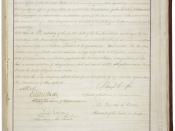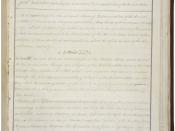Curtis Brown
Mapp v. Ohio (1961)
The Fourth Amendment states "The right of the people to be secure in their persons, houses, papers, and effects, against unreasonable searches and seizures, shall not be violated, and no Warrants shall issue, but upon probable cause . . . and particularly describing the place to be searched, and the persons or things to be seized."
Mapp was suspected of committing a high class crime. Police came into home without search warrant and found evidence obtained illegally for a exposure materials charge that carried a sentence of 1 to 7 years.
Mapp was found guilty due to state laws had not interfered with federal laws. Though supreme court had to make rebuttal due to this ruling
This ruling changed law in terms of warrants and the abilities of sates to prosecute citizens
Korematsu v. United States (1942)
The provisions of other orders requiring persons of Japanese ancestry to report to assembly centers and providing for the detention of such persons in assembly and relocation centers were separate, and their validity is not in issue in this proceeding
This case had all people of Japanese ancestry placed in internment camps in an effort to curtail any Japanese based espionage that citizens may commit against the United States
This law violated many laws but was kept enacted until the end of world war two and reparations were later paid in the 1990's to survivors.
Escobedo v. Illinois (1964)
A Mexican immigrant was charged with murder of his brother and law and was denied counsel.
particular suspect in police custody who has been refused an opportunity to consult with his counsel and who has not been warned of his constitutional right to keep silent, the accused has been denied the assistance of counsel in violation of the...


